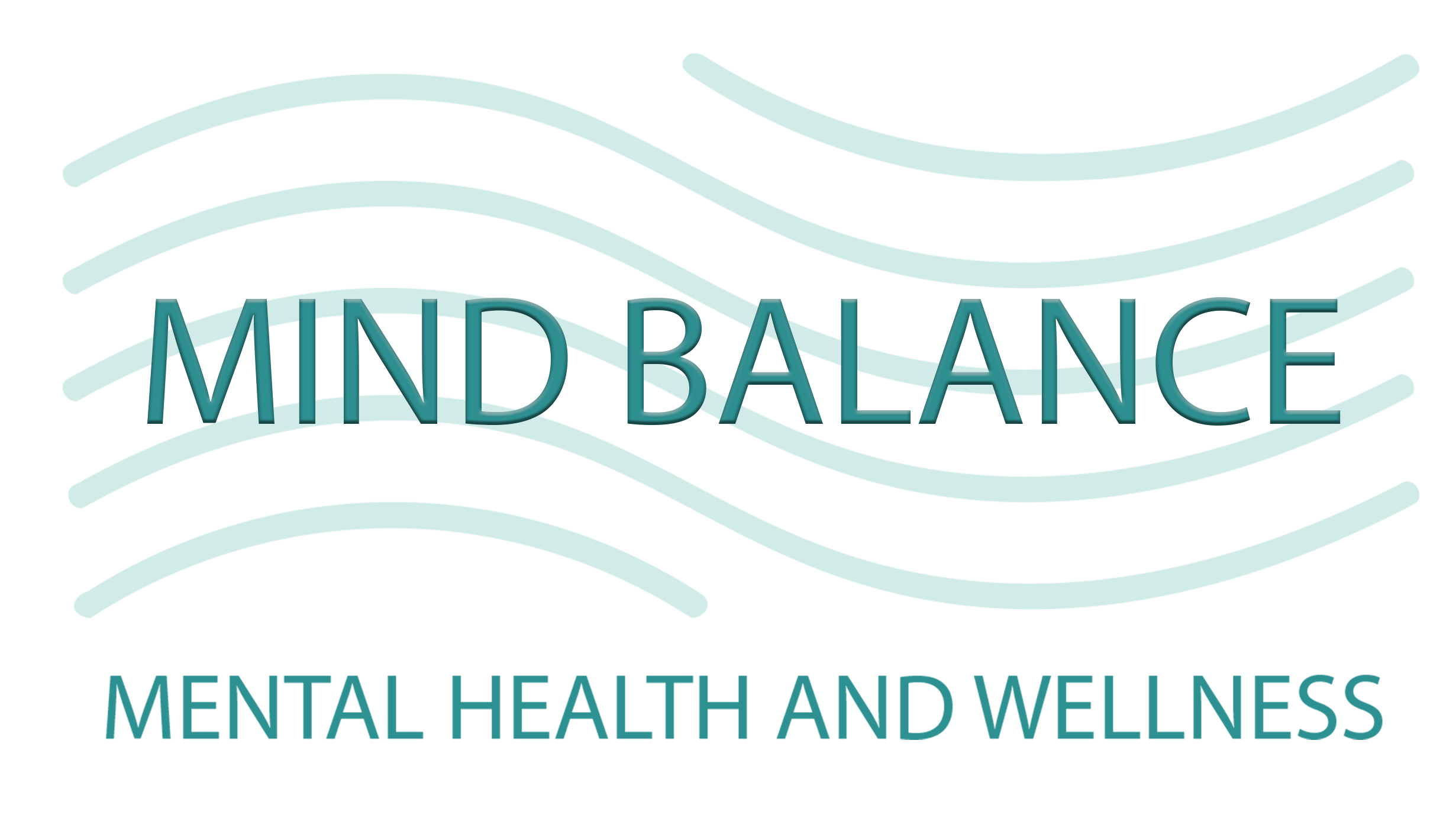Reasons for Choosing Mind Balance
Mind Balance Mental Health and Wellness offers several compelling reasons to choose our services for bipolar disorder treatment in Charlotte.
Professional Expertise
At Mind Balance, we pride ourselves on our professional expertise. Our team includes medical doctors skilled in treating bipolar and related disorders. This expertise ensures that our patients receive top-tier care tailored to their specific needs. We also work closely with a comprehensive care team that includes:
- Psychiatrists
- Psychologists
- Social Workers
- Psychiatric Nurses
This diverse team approach is aligned with recommendations ensuring a holistic and effective treatment plan.
Comprehensive Services
Our comprehensive services are designed to address all aspects of bipolar disorder. Treatment is directed at managing symptoms and enhancing the quality of life for our patients. Our services include:
- Medication Management: Tailored prescriptions to manage mood swings and stabilize the emotional state.
- Therapy Options: Includes cognitive behavioral therapy and other psychotherapy methods, proven effective in combination with medication.
- Educational Programs: Workshops and informational sessions to educate patients and families about bipolar disorder.
- Support Groups: Providing a community and support network for shared experiences and mutual encouragement.
For an in-depth discussion about managing mental health treatments, explore our related services such as depression treatment, anxiety treatment, and tele-psychiatry.
Professional Expertise
- Multidisciplinary Team Involvement
- Specialized and Experienced Professionals
Comprehensive Services
- Medication and Therapy Integration
- Educational Workshops
- Support Networks
We believe that an integrated approach combining professional expertise and comprehensive services provides the best outcomes for managing bipolar disorder. By choosing Mind Balance, patients are empowered with the tools and support they need for a healthier, balanced life.
Understanding Bipolar Disorder Treatment
When it comes to bipolar disorder treatment, it’s critical to consider a multi-faceted approach that includes medication and therapy. At Mind Balance Mental Health and Wellness, we offer comprehensive services to address the unique needs of each individual.
Importance of Therapy
While medication is essential, therapy is equally important in the treatment of bipolar disorder. Therapy helps individuals understand their condition, develop coping strategies, and manage symptoms more effectively. At Mind Balance, we offer various therapeutic approaches:
Cognitive Behavioral Therapy (CBT)
CBT is a form of therapy that helps individuals identify and change negative thinking patterns. It is particularly effective for treating depressive episodes in bipolar disorder.
Interpersonal and Social Rhythm Therapy (IPSRT)
IPSRT focuses on stabilizing daily routines and improving interpersonal relationships. It emphasizes the importance of regular sleep, exercise, and nutrition, which are crucial lifestyle factors in managing bipolar disorder.
Family Therapy
Family therapy involves the patient’s loved ones in the treatment process. It aims to improve communication, resolve conflicts, and build a supportive environment. For more on the impact of family support, visit our section on family support.
By combining medication with therapy, we provide a holistic approach to bipolar disorder treatment. Visit our other related pages for more information on behavioral health treatment and depression treatment.
Lifestyle Factors in Bipolar Treatment
At Mind Balance Mental Health and Wellness, we emphasize the importance of lifestyle factors in the treatment of bipolar disorder. Incorporating healthy habits into daily routines can significantly impact mental health and aid in managing symptoms.
Nutrition and Diet
Good nutrition supports the body and brain, helping them function optimally. For individuals with bipolar disorder, a balanced diet can be particularly beneficial. According to WebMD, a diet low in saturated fats with whole grains, fresh fruits, and vegetables is recommended.
| Nutrient | Recommended Sources |
|---|---|
| Whole Grains | Brown rice, oats, quinoa |
| Fresh Fruits | Berries, apples, oranges |
| Vegetables | Leafy greens, carrots, bell peppers |
| Healthy Fats | Avocados, nuts, olive oil |
By focusing on these nutritional guidelines, individuals can support their overall health and potentially improve their mental well-being. Considering the complexity of bipolar disorder, it’s essential to work with professionals to tailor dietary plans to individual needs.
Physical Activity and Sleep
Regular physical activity is another crucial component in managing bipolar disorder. WebMD highlights that even simple activities like walking can naturally boost mood. We recommend integrating regular exercise into daily routines to help stabilize mood swings and improve overall mental health.
| Activity | Duration per Week |
|---|---|
| Walking | 150 minutes |
| Yoga | 60 minutes |
| Aerobics | 75 minutes |
| Strength Training | 60 minutes |
Quality sleep is equally important. Maintaining a consistent sleep schedule helps regulate brain chemistry, which is vital for individuals dealing with bipolar disorder. WebMD advises that getting enough sleep can significantly impact mood stability.
At Mind Balance, we understand the interconnectedness of these lifestyle factors and offer comprehensive guidance to incorporate them effectively into your treatment plan. Visit our related sections on depression treatment and anxiety treatment for more information.
By focusing on nutrition, physical activity, and sleep, we aim to provide holistic care that supports mental well-being and promotes effective management of bipolar disorder.
Managing Bipolar Triggers
Managing triggers is an essential part of effective bipolar disorder treatment. At Mind Balance, we aim to provide the support necessary for managing these triggers, ensuring that individuals can maintain stability and wellness.
Stress Management
Effective stress management can significantly impact the course and management of bipolar disorder. Stress can trigger mood swings and exacerbated symptoms. Here are some common stress management techniques that we recommend:
- Rest: Ensuring adequate rest helps in stabilizing mood and promoting well-being.
- Hobbies: Engaging in activities that bring joy can serve as a great coping mechanism.
- Relaxation Methods: Techniques such as yoga, deep breathing, and meditation can reduce stress levels significantly (WebMD).
Incorporating these methods into a daily routine can help manage stress levels effectively. Below is a table summarizing stress management techniques:
| Stress Management Technique | Benefit |
|---|---|
| Rest | Stabilizes mood, promotes mental well-being |
| Hobbies | Provides mental respite, reduces anxiety |
| Yoga/Deep Breathing | Lowers stress, improves focus |
For additional information on managing mental health, check out our services on behavioral health treatment.
Identifying Triggers
Identifying triggers is another crucial step for managing bipolar disorder. Certain stressors can precipitate episodes of mania or depression. Common triggers include major life changes, feelings of loneliness, and financial difficulties.
We encourage clients to keep a life log or chart, recording:
- Sleep patterns
- Diet
- Exercise
- Mood changes
This log can help in recognizing patterns and triggers. Working with healthcare professionals to review these logs can lead to developing strategies to avoid these triggers.
| Trigger | Effect |
|---|---|
| Major Life Changes | Can trigger mood swings |
| Loneliness | Can lead to depressive episodes |
| Financial Difficulties | Stress and anxiety triggers |
Our professionals at Mind Balance can help you understand your triggers and develop a personalized plan to manage them. For more insights, visit our section on depression treatment.
By focusing on stress management and trigger identification, clients can better navigate the challenges of bipolar disorder, leading to improved mental health and stability.
Long-Term Effects and Considerations
Treatment Challenges
Bipolar disorder presents several long-term treatment challenges that require expert attention and consistent care. Left untreated, symptoms worsen over time, with episodes of depression and mania becoming more frequent and prolonged. This escalation increases the risk of suicidal thoughts, making it critical to manage the condition effectively.
One major challenge is finding the right balance of medications and therapies. Advances in drug treatment remain modest, underscoring the importance of combining medication with other treatment methods (NCBI). Our multidisciplinary team at Mind Balance provides a comprehensive mental health treatment plan, integrating medication, therapy, and lifestyle adjustments tailored to the individual needs of our patients.
| Challenge | Description |
|---|---|
| Symptom Escalation | Increased frequency and severity of depressive and manic episodes |
| Medication Balance | Difficulty in finding and maintaining the optimal drug regimen |
| Suicidal Thoughts | Elevated risk necessitating immediate intervention |
Monitoring and Adherence
Effective management of bipolar disorder necessitates rigorous monitoring and strict adherence to the treatment regimen. Studies suggest that regular monitoring can significantly reduce recurrence rates of depressive and manic symptoms.
At Mind Balance, we emphasize ongoing assessment to ensure that each patient’s treatment remains effective over the long term. Long-term monitoring involves regular check-ins, which help us make necessary adjustments to the treatment plan and support adherence. Patients who consistently engage in their treatment plan experience fewer hospitalizations and a reduction in the overall economic burden associated with bipolar disorder (NCBI).
| Monitoring Aspects | Benefits |
|---|---|
| Regular Check-ins | Timely adjustments to treatment, increased adherence |
| Symptom Tracking | Early identification of relapse, improved outcomes |
| Health Assessments | Comprehensive care, reduced hospitalization rates |
Our integrated approach includes options like tele-psychiatry and outpatient psychiatry to provide flexible and continuous support. We believe that consistent care and monitoring lead to more sustainable, long-term health outcomes for individuals grappling with bipolar disorder.
For more information on related treatments, consider exploring our services such as anxiety treatment and depression treatment.
Support System in Bipolar Disorder Care
For individuals living with bipolar disorder, having a strong support system is pivotal to successful treatment and long-term stability. At Mind Balance Mental Health and Wellness, we emphasize the importance of a robust support network which includes family involvement and the benefits of group therapy.
Family Support
Family support is a cornerstone in the care of individuals with bipolar disorder. Research indicates that family-focused therapy can reduce relapse rates and lower the frequency of rehospitalization, particularly in the first 1-2 years after a manic, mixed, or depressive episode.
Benefits of Family Support:
- Symptom Recognition: Family members often are the first to notice early signs of a mood episode. This early recognition can lead to prompt intervention and treatment adjustments.
- Medication Adherence: Families play a crucial role in encouraging adherence to prescribed medication, which is vital for managing bipolar disorder.
- Routine Maintenance: Helping the individual to maintain a regular sleep-wake cycle, which is essential for mood stability.
- Emotional Support: Providing a nurturing environment where the individual feels understood and supported.
Group Therapy Impacts
Group therapy provides another layer of support that complements family involvement. In a group setting, participants benefit from shared experiences and peer support, which can be incredibly empowering.
Benefits of Group Therapy:
- Peer Support: Interacting with others who understand the challenges of living with bipolar disorder can reduce feelings of isolation and provide a sense of community.
- Symptom Management: Group members often share strategies for managing symptoms, offering practical advice and support.
- Structure and Accountability: Regular group meetings provide structure and ensure ongoing engagement in treatment, which can be beneficial for long-term management.
Combining medication with psychoeducational group therapy has proven more effective in preventing the recurrence of illness in people with bipolar disorder than medication alone.
Practical Support Tips
| Support Type | Key Benefits |
|---|---|
| Family | Symptom recognition, medication adherence, routine maintenance, emotional support |
| Group Therapy | Peer support, symptom management, structure, and accountability |
By choosing Mind Balance for your mental health needs, you access a holistic approach to bipolar disorder treatment that integrates professional expertise with comprehensive family and group support strategies. For further support in managing bipolar disorder, check out our other services such as depression treatment, anxiety treatment, and tele-psychiatry.




